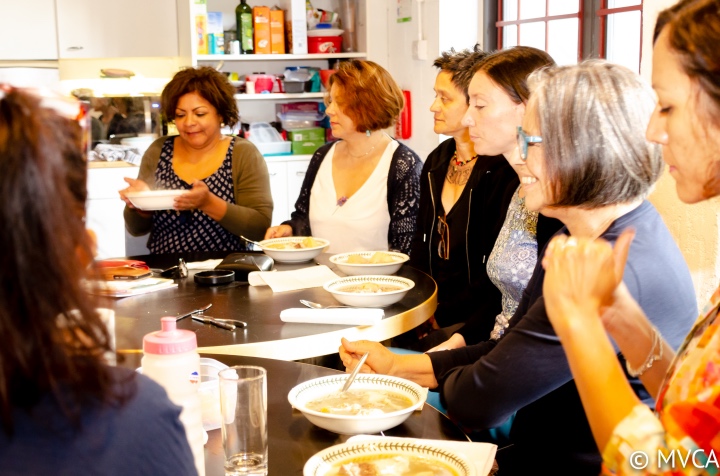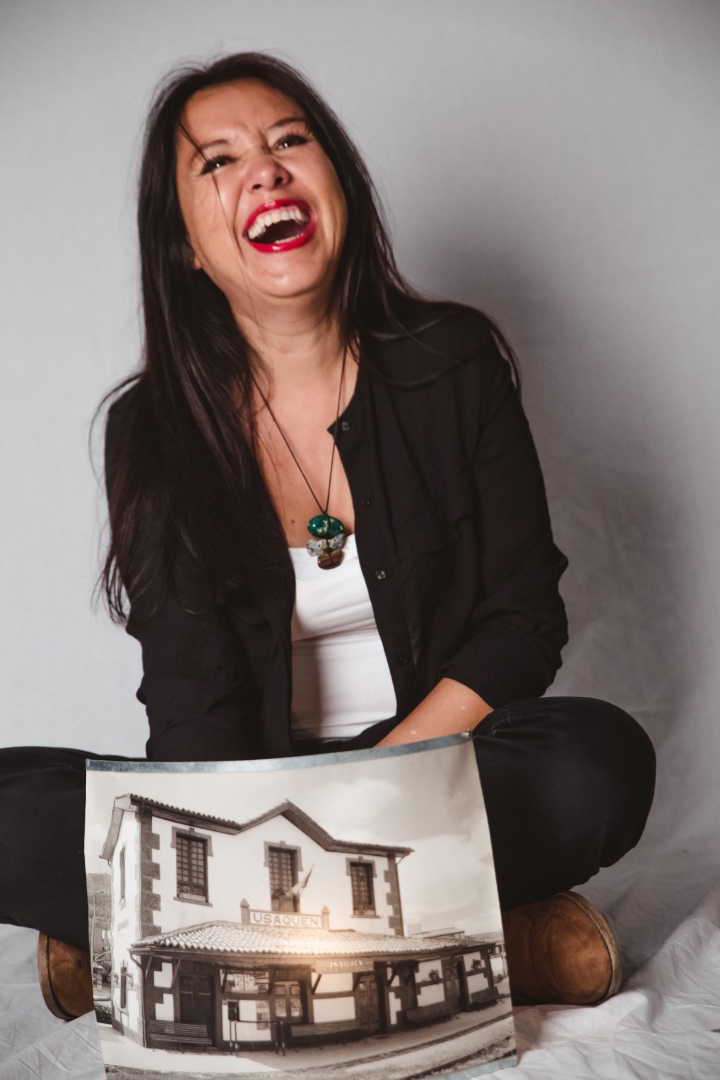“In January 1987, my husband disappeared and my life and the life of my little daughter changed forever. The memory of his beliefs, his life and his struggle will always illuminate my path to pursuing truth and justice. For 30 years, I have denounced this crime, but his murder has still gone unpunished."
These are the words of Elizabeth, a brave and relentless woman, who arrived in London many years ago and has never given up her quest for finding the truth behind her husband’s disappearance. In Diaspora Woman, Elizabeth found a safe place to share her story and today, in partnership with other women, she is helping build peace in her homeland: a country in which these women no longer reside, but holds a place in their hearts and thoughts wherever they go.
Diaspora Woman started by inviting displaced women to share their stories of exile, and since then it has focussed its work on empowering them and supporting them in healing the traumas caused - directly or indirectly – by the Colombian armed conflict.
The stories are shared in a warm and caring gathering, around a meal prepared for each occasion that a ‘testimony’ is heard, in honour of the one who has chosen to open her heart and recount what caused her journey into exile. It is a ritual carefully crafted to listen, to heal, to leave behind, to move forward.
This ritual is a soft and sensitive approach to document these women’s experiences, which currently enables Diaspora Woman to support the work of the Commission for the Clarification of Truth, Cohabitation and Non-repetition, the official organisation that investigates what happened to the victims of the armed conflict, both those who stayed in Colombia and those who were forced into exile.
“For me, it was a place where I could be myself, where I speak freely, without the fear of being judged or discriminated against,” says Marta Hinestroza, a lawyer who came to the UK after living under constant death threat because of her work defending victims of violence. “The group has allowed me to know stories of displacement different to mine, to be able to see the conflict from other points of view.”
 photo by Maria Victoria Cristancho
photo by Maria Victoria Cristancho
Through Art, particularly photography, the group also reach healing and empowerment. Being photographed has given displaced women a voice, a sense of freedom, and the right to be listened to; it has placed them as protagonists, has ratified their beauty and has reminded them of their own femininity. Their portraits have been curated in the portrait exhibition Imagine Peace, which has been presented in several venues in the UK.
Diaspora Woman has also used performance pieces, such as Victoria, a monologue presented at the Women and War Festival in 2017. The piece tells the story of Ana Victoria Bastidas, now the first female Colombian priest in the Anglican Church, who left Colombia after being kidnapped while working with an indigenous community in the Pacific rain forest. The last sentence of Ana Victoria’s testimony, describing her release from captivity, reads: “Today, when I try to order the events, one image comes to mind: Helena and I in a boat on the Atrato river, silenced by days of brutality and, I think, defeated by frustration and emptiness, we arrive in Quibdó, I don’t remember what time it was, but there was sun, a lot of sun, so much that I couldn’t see clearly the faces of the people waiting for us…”
But it is not only women who have suffered the battles of the armed conflict that are part of Diaspora Woman. The group is equally open to those who left Colombia for reasons that are not necessarily connected to the violence present in the country. Such is the case of Nadia Romero, a dancer and an actress who came to London to study and has now built a career as a dance teacher in the UK.
Nadia, inspired by the stories she listened to and connected with, created Soledad, a performance that tells the story of a woman who is trying to rebuild her life in exile while struggling to leave behind a traumatic event from her past. A work-in-progress of her performance was presented in June 2018 at the portrait exhibition Imagine Peace.
 photo by Ingrid Guyon
photo by Ingrid Guyon
It is precisely that synergy between the diverse experiences, reflexions and feelings of the women who form Diaspora Women which has enabled it to become a safe and comforting place for the victims, helping them heal and cope with the traumas caused by the armed conflict in Colombia.
In the words of the group’s founder Helga Flamtermesky: “What has been most surprising about this project is that the majority of women who had been affected by the conflict had been carrying their burden in silence without seeking any help. But during this process they have been able to accept that they are victims, to recognise strategies they’ve used to over come their trauma, to share these resources and create bonds of affection that have surpassed political ideology or social background in order to help build peace in their home country, in this very crucial moment when peace is at stake.”
For more info visit www.mujerdiaspora.com















